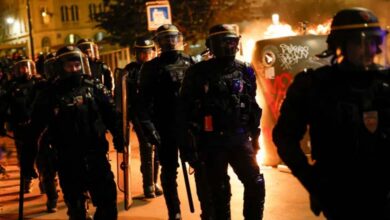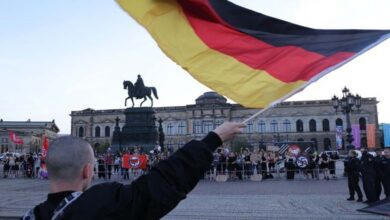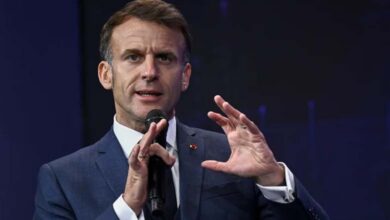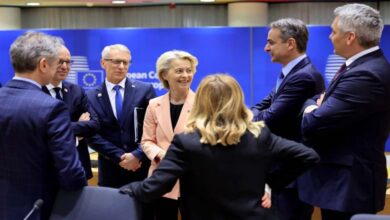The Muslim Brotherhood and the Munich Center: A Beginning That Signals the End
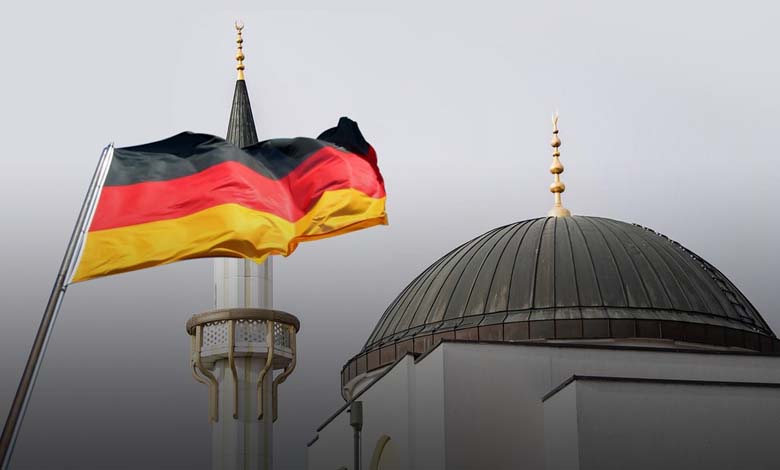
Anyone familiar with the history of the Muslim Brotherhood in Germany understands the pivotal role of the Islamic Center in Munich in the movement’s rise — but now, that story appears to be turning against its authors.
-
The Muslim Brotherhood in Germany: Infiltration Attempts Collapse under Intelligence Surveillance
-
One of the key religious leaders of the Muslim Brotherhood in Germany and Europe… What do you know about Taha Sulaiman Amer?
-
New Security Warning in France: The Muslim Brotherhood, “the Greatest Internal Threat”
For decades, Germany has been a strategic priority for the Brotherhood. Their activities began when Said Ramadan, the Egyptian son-in-law of Brotherhood founder Hassan al-Banna, and Issam al-Attar, a Syrian leader of the movement, settled in Germany — just as the Islamic Center in Munich was being built in the late 1950s.
According to reports from the Federal Office for the Protection of the Constitution (Germany’s domestic intelligence agency), the Islamic Centers in Aachen and Munich, Taiba Mosque in Berlin, and Abu Bakr Center in Cologne are among the Brotherhood’s key second-tier institutions.
-
Silent Infiltration Through 50 Centers… This Is How the Muslim Brotherhood Operates in Germany
-
The Muslim Brotherhood Network in Germany: Organizations and Operational Mechanisms
-
Measures in the Autumn of Relations: What the Germany-Taliban Negotiations Have Produced
The Brotherhood gained a foothold in Germany in the late 1950s when Said Ramadan (1926–1995), al-Banna’s right-hand man and son-in-law, took control of the committee responsible for building the Islamic Center in Munich, which had been initiated by a group of migrants.
In 1960, the Brotherhood founded its most important organization in Germany: the Islamic Community of Germany, which emerged alongside the construction committee of the Munich center. In 2018, it was renamed the Muslim Community of Germany, now comprising 340 official members and many more supporters.
In 1967, the mosque building committee in Munich and the Islamic Community laid the foundation stone for what became the Islamic Center of Munich.
-
Germany… Is the End of the Muslim Brotherhood Near?
-
Report Warns: Muslim Brotherhood Maneuvers in Germany to Infiltrate Society and Expand Its Activities
-
Hidden Details Behind the Scenes: How the Muslim Brotherhood Creates Followers in Europe
An Organic Link
The Muslim Community of Germany and the Islamic Center in Munich are organically linked — each has helped sustain the other, even after relocating to different cities.
The Muslim Community of Germany, considered the most important Brotherhood entity in the country, has been led by top Brotherhood figures including Said Ramadan, the center’s founder, and Mohamed Mahdi Akef, a former Supreme Guide of the movement, who served as imam of the Munich center between 1984 and 1987.
The latest report from the Federal Office for the Protection of the Constitution states that the Muslim Community of Germany founded the Islamic Center in Munich, thereby confirming its Brotherhood affiliation.
-
ISIS and the Muslim Brotherhood under surveillance: Political Islam worries Germany
-
Bill Before Parliament… Will Germany Ban the Muslim Brotherhood?
-
Germany Prepares for a World War… “Protective Trenches” Linked to an Electronic “Fingerprint”
To this day, the Munich Islamic Center maintains ties with the Brotherhood, despite the Muslim Community’s headquarters being moved from Munich to Cologne in western Germany.
Currently, the Muslim Community of Germany is associated with over 50 smaller organizations across the country, in addition to dozens of mosques and prayer rooms.
Escalating Surveillance
Federal intelligence reports confirm that the number of core Brotherhood members in Germany has risen significantly — from 1,040 in 2018 to 1,450 in 2020.
-
The New Arm of the Muslim Brotherhood Performs the “Victim Dance” in Germany… Citizenship Revocation?
-
The Terrorism Threat Remains High: Has the Number of Dangerous Islamists in Germany Decreased?
-
Germany continues pursuit of the Muslim Brotherhood… Details
-
Muslim Brotherhood Leaks… Book Analyzes the Role of Drama in Exposing Brotherhood’s Plots
A Game-Changing Classification
Until recently, German authorities categorized the Brotherhood as part of the “legal spectrum”, with one intelligence report noting: “Terrorist groups like ISIS or Al-Qaeda attempt to overthrow the system through violence, while other Islamist organizations operate legally in Germany, pursuing long-term aims of social and political transformation.”
But now, Munich — the Brotherhood’s launchpad in Germany — is taking the lead in labeling the group “extremist”, thereby setting the stage for a direct confrontation with its ideology and operations.
-
How does the Muslim Brotherhood network operate in Germany? An intelligence report answers
-
How the Far Right is Exploiting Artificial Intelligence in Germany’s Elections
-
The Muslim Brotherhood and its arms permeated Germany deeply
-
What are the similarities between the “Assassins” sect, the Muslim Brotherhood, and the organizations that emerged from them?
The Interior Ministry of Bavaria (the state that includes Munich) has announced, in an official statement, the creation of a registry of extremist or extremist-influenced organizations.
The list is expected to include the Muslim Brotherhood, alongside far-right and far-left movements and parties.
This classification will bar members of such groups, including the Brotherhood, from employment in public institutions like schools, the police, and the judiciary, under the principle that: “There is no place for enemies of the Constitution in public service.”
Observers believe this move will echo across other German federal states and at the national level, ushering in a new approach to dealing with the Brotherhood: not as dialogue partners, but as an extremist, anti-constitutional organization.
-
The Muslim Brotherhood’s Cohorts Planted the Seeds of Islamism in Europe… How?
-
The Muslim Brotherhood in French Sports: Quiet Infiltration and Hidden Influence
-
The Muslim Brotherhood’s Cohorts Planted the Seeds of Islamism in Europe… How?
-
The Brotherhood worked to establish its schools in Europe to expand its ideas
-
How the Muslim Brotherhood Infiltrated the Heart of Europe
-
Muslim Brotherhood Divisions Worsen… Rising Conflict between London and Istanbul Factions
-
After his expulsion, the director of the Islamic Center in Hamburg leaves Germany
-
What are the reasons behind the internal conflicts and divisions within the Muslim Brotherhood? What happened?
-
Selling illusions and offering false hope… Why is the Muslim Brotherhood calling for reconciliation?
-
A researcher in political Islam reveals the Brotherhood’s evasions to conceal their sources of funding… Details



